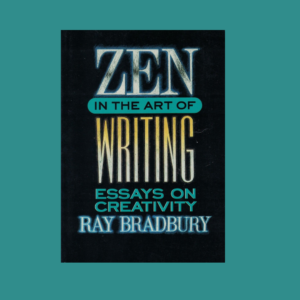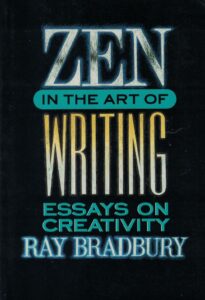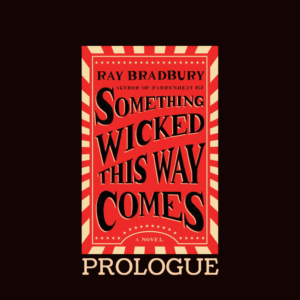“Ray Bradbury (born August 22, 1920, Waukegan, Illinois, U.S.—died June 5, 2012, Los Angeles, California) was an American author best known for his highly imaginative short stories and novels that blend a poetic style, nostalgia for childhood, social criticism, and an awareness of the hazards of runaway technology.” Google ai
I’m not exactly when it was, during the 1880s, I first saw the movie Something Wicked This Way Comes, but I assure you that I count watching that movie as one of the hallmark moments of my life. From the opening lines of the movie, I knew that I was hearing the voice of a master writer.
Prologue
“First of all, it was October, a rare month for boys. Not that all months aren’t rare. But there be bad and good, as the pirates say. Take September, a bad month: school begins. Consider August, a good month: school hasn’t begun yet. July, well, July’s really fine: there’s no chance in the world for school. June, no doubting it, June’s best of all, for the school doors spring wide and September’s a billion years away.”(Bradbury, Something Wicked This Way Comes, pg 1).
Please allow me to say that I hardly ever watch any movie that resembles a Horror Flick, and honestly, when I watched the movie, the name Ray Bradbury was only a vague ringing in my ear. As I understand it now, Ray Bradbury was one of the most prolific Sci Fi writers of all times, but I never was interested enough in Sci Fi to check it out.
At this point, I am thrilled to be able to say that watching the movie Something Wicked This Way Comes opened many doors for me. Most importantly, I have discovered the writing of one of the best word weavers of all time.
I have read several of Bradbury’s books and stories now, and I can safely say that Bradbury’s grasp of the art of writing is unmatched.
Beginning October 1, I’ll begin sharing a bit of what I love about the novel Something Wicked This Way Comes. I hope you will join me.

Bradbury also wrote a Memoir, which is also a series of essays about the art and craft of writing. I have a 1989 edition of Bradbury’s book: Zen in the Art of Writing: Essays on Creativity, and today, I want to share what this master craftsman said about the importance of writing Morning Pages.

PREFACE [Zen in the Art of Writing]
“Stay alive!
“So I collected comics, fell in love with carnivals and World’s Fairs and began to write. And what, you ask, does writing teach us?
First and foremost, it reminds us that we are alive and that it is a gift and a privilege, not a right. ….
So while our art cannot, as we wish it could, save us from wars, privation, envy, greed, old age, or death, it can revitalize us amidst it all.
Secondly, writing is survival. Any art, any good work, of course, is that.
Not to write, for many of us, is to die.
We must take arms each and every day, perhaps knowing that the battle cannot be entirely won, but fight we must, if only a [xii] gentle bout. The smallest effort to win means, at the end of each day, a sort of victory. Remember that pianist who said that if he did not practice every day he would know, if he did not practice for two days, the critics would know, after three days, his audiences would know.
A variation of this is true for writers. Not that your style, whatever that is, would melt out of shape in those few days. But what would happen is that the world would catch up with and try to sicken you. If you did not write every day, the poisons would accumulate and you would begin to die, or act crazy, or both.
You must stay drunk on writing so reality cannot destroy you. For writing allows just the proper recipes of truth, life, reality as you are able to eat, drink, and digest without hyperventilating and flopping like a dead fish in your bed.
I have learned, on my journeys, that if I let a day go by without writing, I grow uneasy. Two days and I am in tremor. Three and I suspect lunacy. Four and I might as well be a hog, suffering the flux in a wallow. An hour’s writing is tonic. I’m on my feet, running in circles, and yelling for a clean pair of spats.
So that, in one way or another, is what this book is all about. Taking your pinch of arsenic every morn so you can survive to sunset. Another pinch at sunset so that you can more-than survive until dawn. The mirco-arsenic-dose swallowed here prepares you not to be poisoned and destroyed up ahead. [xii]
Work in the midst of life is that dosage. To manipulate life, toss the bright-colored orbs up to mix with the dark ones, blending a variation of truths. We use the grand and beautiful facts of existence in order to put up with the horrors that afflict us directly in our families and friends, or through the newspapers and T.V. …The list is endless and crushing if we do not creatively oppose it.
“Which means writing as cure. Not completely, of course. You never get over your parents in the hospital or your best love in the grave.
“I won’t use the word ‘therapy,’ it’s too clean, too sterile a word. I only say when death slows others, you must leap to set up your diving board and dive head first into your typewriter.
“…my motto, found in my Toynbee Convect:
“.. . to gently lie and prove the lie true . . . everything is finally a promise . . . what seems a lie is a ramshackle need, wishing to be born. ..
“And now I have come up with a new simile to describe myself lately. It can be yours. Every morning I jump out of bed and step on a landmine. The landmine is me. After the explosion, I spend the rest of the day putting the pieces together.
“Now, it’s your turn. Jump!” xv
Discover more from Jacki Kellum
Subscribe to get the latest posts sent to your email.

